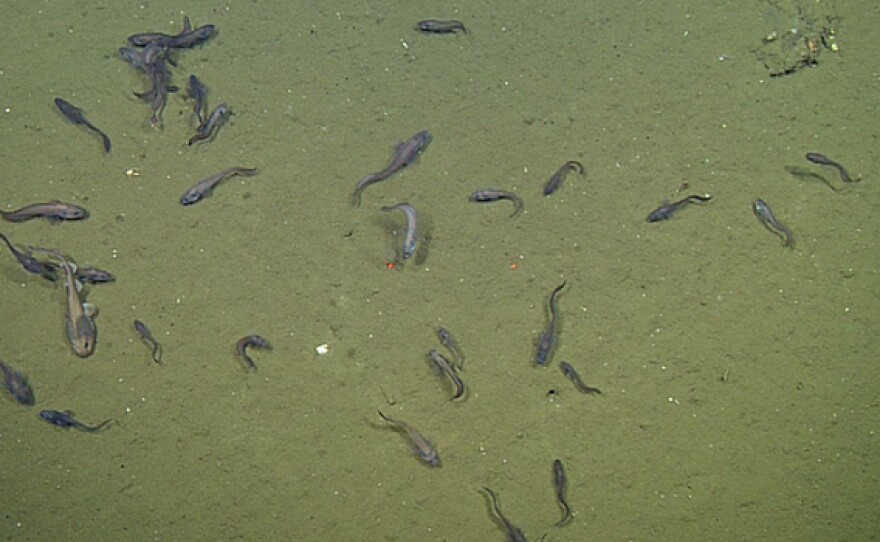California researchers have found that oxygen levels and water temperatures play a key role in the health of deep-sea fish populations.
San Diego and Monterey Bay scientists studied fish on the floor of the Gulf of California.
“This is an example of some of the video that we are analyzing for this research,” said Natalya Gallo, a post-doctoral researcher at the Scripps Institution of Oceanography.
She pointed to footage taken along the seafloor on the Gulf of California near the Mexican coast. The pictures come from a remotely controlled submarine.
Researchers use the underwater tool to gauge the impact of a warming ocean on fish.
“The really big question that we’re trying to answer is how sensitive deep-sea communities, and in general ocean, communities are going to be to these changes,” Gallo said.
RELATED: Oysters To Serve As Biological Sensors In San Diego Estuaries
Gallo and the other researchers on the team surveyed the northern gulf, which is closer to normal ocean conditions and the southern gulf, which has one of the planet’s most extreme low oxygen ocean zones.
Two factors had the biggest impact on fish.
“Temperature and oxygen are really contributing the most to the story of which environmental variables are most tightly correlated with existing communities that we see now in the Gulf of California,” Gallo said.
RELATED: Frozen Skin Cells Could Create A New Future For Endangered Northern White Rhinos
The findings will help scientists understand changes in other locations as the ocean gets hotter because the warmer water is not capable of holding the same amount of oxygen.
“We know that oxygen is declining in the ocean globally,” said Lisa Levin, a Scripps Institution of Oceanography, biological oceanographer. “And that the really low oxygen zones, oxygen minimum zones are expanding as the ocean warms.”
Scientists already expect certain outcomes from climate-related changes.
“The body size of animals will get lower as the ocean warms and the oxygen declines and overall the oceans will become less productive,” Levin said. The research findings are published in the current edition of the Journal Marine Ecology Progress Series.






